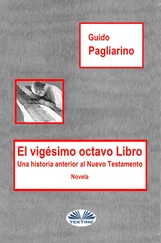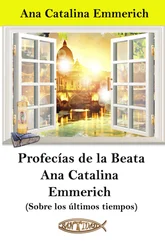Serafina watched them leave until they were a blur in the distance. She allowed herself, only this once, to spit on the ground with contempt. The mule was the only one of the four departing beasts she could not imagine killing. The other three she stabbed, quartered, and disemboweled with her knife, throwing their livers to the feral pigs that roamed the cemetery at night, and burning the rest until only the teeth and bones remained. Those she left on the ground as a warning to anyone else who dared defy her. With these pleasant images of butchery still lingering in her mind, Jacinto’s daughter walked back home.
She kept her mother’s washing and ironing clients, but dismissed the men who came late at night. They had deserted her mother when she was unable to hide her disease any longer, but the scent of young flesh brought them back. One refused to go, knocking her against the iron bed railing and trying to mount her. She stabbed him in the left hand in panic, and was surprised at how quickly he let her go and threw himself on the floor, writhing and screaming in pain. Her imaginary bloodletting had been always soundless and in slow motion. She hit him in the mouth and on the head with her laundry paddle while he was helpless on the floor. When he passed out, she dragged him all the way to the sewage ditch, one hundred meters away, dumping him on the edge, so he would not drown. She wanted him alive so he would warn others not to come to her shack. He did this better than she imagined. To save face, he spread the word that she was sick like her mother.
Without the men’s money, Serafina could not pay Don Manuel for his lessons. Her mother had taken her to Don Manuel a year earlier, insisting that he teach her reading, writing, and arithmetic. Don Manuel disliked children, girls in particular, and especially pretty mulatto girls like this one, all of them born whores who knew instinctively how to wrap wealthy white men around their little fingers. No need to teach them letters and numbers. Besides, even rich white girls on the island were mostly illiterate. He relented only after Serafina’s mother threatened to tell the authorities that he was a sodomite. She had no proof, and no clear notion of what the word meant (it could not be the common buggering all men engaged in, but something else, particularly wicked, that she could not fathom), but knew it was a deadly accusation. Don Manuel did know what the word meant. He also knew the Tribunal of the Inquisition relished accusations without proof, which allowed them to torture you until you provided it yourself. The stench of the seventeen sodomite sailors recently burnt at the stake was still in the air in San Cristóbal de La Habana. It was Serafina’s turn now to be difficult. She refused to sit across from the little brown gnarled man with the sour-smelling jacket. She gave in after her mother, physically choking with rage, whacked her hard on the buttocks with the laundry paddle. Serafina was already a foot taller than her mother, who had started small and had shrunk considerably with her illness. She could have easily taken the paddle away from her. She did not, afraid that her mother would die more quickly if she shattered the illusion that she was the stronger of the two.
Don Manuel was about to tell Serafina that he could not continue to teach her for free, when much to his own surprise, he heard himself say the opposite. He did not like Serafina any better now that she had learned in one year what had taken him, the smartest person he knew, at least ten. However, he was bored writing love letters and petitions to the authorities for his illiterate neighbors. Although he didn’t realize it yet, he had nearly resigned himself to never seeing his talent and knowledge (one year of law school in Salamanca, Spain!) recognized on this barbaric little island. How far would he be able to stretch the brain of this female mammal that now sat before him, her incongruous yellow locks framing a face that would be handsome if only she were a boy and bathed more often? (Don Manuel, in spite of his musty frock, had a sensitive nose, and Serafina, to keep predator males away, did not wash much.)
Now that Serafina’s improved brain became his only reward, Don Manuel redoubled his efforts. He drew up a curriculum, which included geography and history, but excluded Greek and Latin, which were fit only for gentlemen. Serafina would get free lessons only if she accepted his study plan. She agreed after he promised to continue teaching her reading, writing, and arithmetic. “Useful skills for a bodega owner,” her mother had said. Her dream had been to turn their shack into a dry-goods store. For that purpose she left Serafina the half of her savings that did not go to pay for her own burial. History and geography made Serafina sleepy. She concentrated on keeping her eyes open in the afternoon heat, while Don Manuel droned on about Julius Caesar, raising his voice above the swarm of flies circling their heads. She was glad that he was so long-winded. You did not have to listen to every word to be able to answer his questions. Serafina learned to nap with her eyes open, a few seconds at a time. Don Manuel was never able to catch her, no matter how quickly he swiveled to face her and throw a tricky question at her. Once, Serafina had no answer; she did not even understand the question. She gained time by furrowing her brow and setting her mouth in a snarl, as Don Manuel did when he was in deep thought. She then rhetorically repeated his question, and reiterated it in the affirmative, embellishing it with the sonorous, well-rounded subordinate clauses opening into more subordinate clauses so dear to Don Manuel. For content she used her common sense. When she stopped to catch her breath, three minutes later, Don Manuel dismissed her for the day, although she had just arrived. That night Don Manuel sat on his narrow bed in the dark looking at the fireflies burning in the tall grass outside his window. Now and then, one would fly into the room and then fly back out after it realized where it was. Whenever he had to bare his soul to himself, as he put it, Don Manuel would sit on his bed in the dark. He couldn’t do so in the front room, even with the window shuttered and the door closed. He was dazzled and angry at the way Serafina had bluffed her way out, dazzled at her brilliant sophistry, her daring, her accurate channeling of his voice and intellect, and angry at her for the theft of all he had. Anger soon turned into fear and fear into self-pity, always the last stop in Don Manuel’s emotional turmoil. Could Serafina be an incubus, or maybe a succubus? “Why didn’t You give me a teacher of Don Manuel’s caliber when I was this wretched girl’s age, eh?” he demanded, raising his voice, underlining and spitefully capitalizing the “You.” The half-bottle of rum he had drunk made him combative. At two-thirds, he turned weepy, engaging in a dialogue with his younger selves and several white women and boys who had spurned him in Salamanca and San Cristóbal de La Habana. The last drop of the bottle had a calming effect. He had dissected his life many times before, but Serafina had handed him a particularly sharp scalpel. He was sixty-five years old. He might not be alive a year from now. There was no time left for his dreams to come true. Serafina was his last opportunity. His genius would be recognized in her. He would be remembered as her intellectual master.
When Don Manuel woke up at noon the next day, unsteady and reeking of rum, his ego had shifted from the aspirations of his younger self to the possibilities of the one he now called, with a touch of hauteur, “my pupil.” As often happens when someone gives up what he holds most valuable, he felt an unknown lightness, which he mistook for happiness. Serafina knocked fearfully on his door at their agreed time, convinced that she would be dismissed for good, or roundly scolded. She was embarrassed when he opened the door wearing a dirty nightgown. He noticed, and hid most of his body behind the door. “There will be no lesson today. I am not well. Come back tomorrow,” he said, handing her the filthy clothes he wore every day. She was so relieved that she immediately ran home to wash his clothes and hang them in the sun, instead of finding out what had happened to Tirant lo Blanc after he saved Constantinople from the Ottoman Turks. The shirt and undershirt she had to wash and bleach in the sun many times that afternoon and the next morning, until their dull grey turned into a pure white. It was only after the last garment had been ironed and folded that she opened the book and found out that Tirant lo Blanc had died in his bed overlooking the Bosphorus. Serafina was disappointed that his cause of death was a respiratory infection, not a battlefield wound. The violent reaction of Tirant’s beloved princess Carmesina, on the other hand, pleased her. Carmesina kissed Tirant’s cold corpse with such force that she broke her nose, and her blood flowed so abundantly that her eyes and face were bathed red.
Читать дальше












